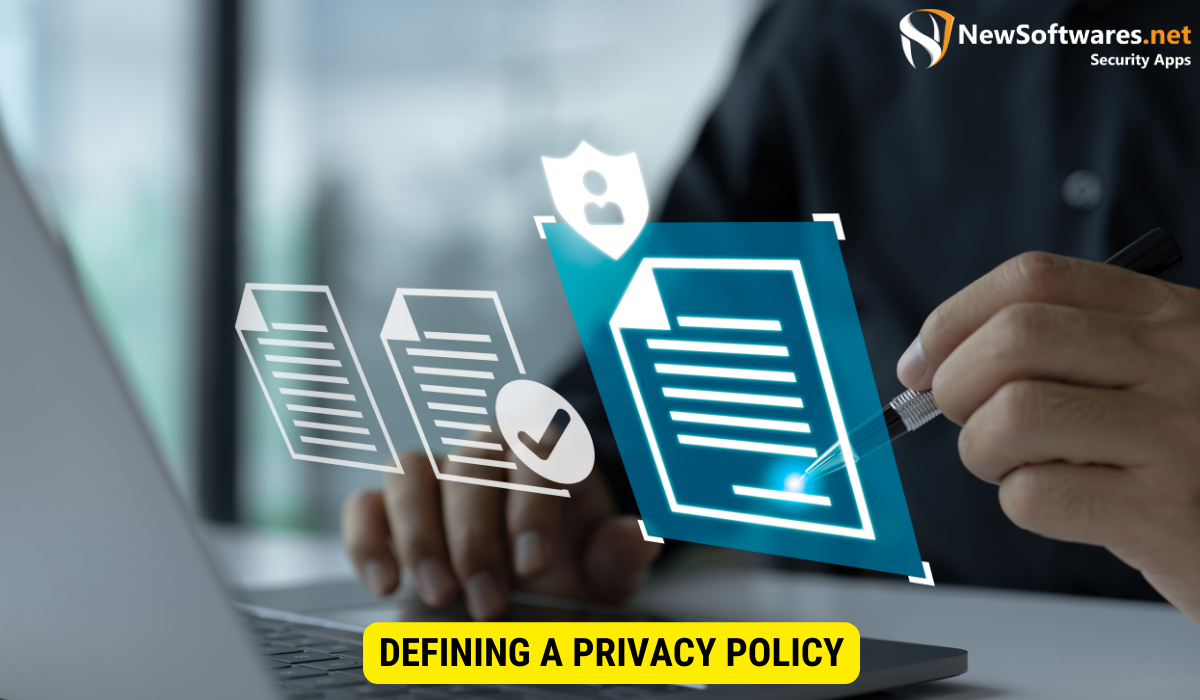Even if a website doesn’t collect personal data, having a privacy policy is recommended for legal compliance, building user trust, and clarifying any data usage, including automatic collections like IP addresses or cookies. It also helps in managing user expectations and protecting intellectual property.
Defining a Privacy Policy

In today’s digital age, privacy is a growing concern for both website owners and users alike. With the increasing amount of personal information being shared online, it is crucial to establish trust and transparency. One of the key behaviors to address these concerns is by having a well-defined privacy policy in place.
A privacy policy is a file that outlines how a website collects, uses, stores, and protects user data. It serves as a transparent and informative resource for users to understand how their personal information is being handled. By clearly communicating these practices, website owners can build trust with their users and reveal their pledge to protecting their privacy.
Creating a privacy policy requires careful consideration of various factors to ensure it effectively addresses the specific needs and concerns of both the website owner and the users. Together, we will explore some of the key components that should be included in a comprehensive privacy policy:
Key Components of a Privacy Policy
When creating a privacy policy, there are several key components that should be included:
- Information Collection: Clearly outline what types of information are collected from users, such as names, email addresses, or browsing history. This helps users understand the extent of data that may be collected and provides transparency.
- Data Usage: Explain how the collected data will be used, whether it is for improving the website, personalizing user experiences, or for marketing purposes. This section should provide users with a clear understanding of how their data will be utilized.
- Data Sharing: Disclose any third parties that may have access to the collected data, such as analytics tools or advertising platforms. This helps users understand who may have access to their information and for what purposes.
- Data Security: Detail the measures taken to ensure the security and confidentiality of user data, such as encryption or regular security audits. This section should reassure users that their information is being protected from unauthorized access or breaches.
- User Rights: Inform users of their rights regarding their data, including the skill to access, modify, or delete their personal information. This empowers users to have control over their data and provides them with options to manage their privacy preferences.
Common Misconceptions About Privacy Policies
There are some common misconceptions surrounding privacy policies that can lead website owners to believe they don’t need one if they don’t collect data. However, this is not the case.
One common misconception is that a privacy policy is only necessary if a website collects sensitive information, for instance credit card numbers or social security numbers. While these types of data certainly warrant a strong privacy policy, even websites that only collect basic information like email addresses should have one in place. This is because even seemingly harmless information can be valuable to third parties for targeted advertising or other purposes.
Another misconception is that privacy policies are only required by law for certain types of websites or industries. While regulations may vary by jurisdiction, having a privacy policy is generally considered a best practice and can help protect website owners from legal implications. It demonstrates a commitment to transparency and user privacy, which can enhance the reputation and credibility of the website.
In conclusion, a well-defined privacy policy is essential for any website that collects user data. It not only helps build trust with users but also make certain compliance with privacy laws and regulations. By clearly communicating data collection, usage, security measures, and user rights, website owners can establish a strong foundation for protecting user privacy and maintaining a positive online experience.
The Importance of Privacy Poli
cies Regardless of Data Collection
Even if your website doesn’t collect data, having a privacy policy has several important benefits.
Legal Implications of Not Having a Privacy Policy
While the specific legal requirements for a privacy policy may vary depending on your jurisdiction, not having one can still have legal implications. Laws and regulations are continually evolving, and it’s important to stay informed about your obligations as a website owner.
By not having a privacy policy, you may run the risk of violating privacy laws, which can result in penalties or legal action. Additionally, without a privacy policy, you may face challenges in meeting the requirements of data protection authorities or partners who require proof of compliance.
Building Trust with Your Users
Even if you don’t collect data, having a privacy policy can support build trust with your users. Privacy is a fundamental right, and users are becoming more aware of the importance of their data privacy. By clearly communicating your commitment to protecting user information, you can create a strong foundation of trust.
A privacy policy demonstrates that you value your users privacy and are taking steps to ensure their data is handled responsibly. This can differentiate your website from others and may encourage users to engage more freely with your content or services.
The Role of Privacy Policies in Non-Data Collecting Websites
Privacy policies are not just for websites that collect data. Even websites that don’t actively collect user information can benefit from having a privacy policy in place.
Protecting Intellectual Property
One aspect that is often overlooked is the protection of intellectual property. A privacy policy can include provisions that protect your website’s original content, images, or other creative works. By clearly stating your ownership rights and how users can and cannot use your content, you can help prevent unauthorized use or infringement.
Managing User Expectations
Another advantage of having a privacy policy on a non-data collecting website is managing user expectations. Users may still have concerns about how their data is being handled, even if they’re not explicitly providing it to your website. By addressing these concerns in a privacy policy, you can provide reassurance and transparency, thereby enhancing the user experience.
Creating a Comprehensive Privacy Policy for Your Website

Even if you don’t collect data, it’s still essential to have a comprehensive privacy policy for your website. Here are some essential elements to include:
Essential Elements to Include
- Contact Information: Provide your website’s contact details for users to reach out with any privacy-related anxieties or questions.
- Privacy Statement: Clearly state your commitment to protecting user privacy and the purpose of your privacy policy.
- Information Collection: Detail any data that may be automatically collected, such as IP addresses or cookies.
- Third-Party Services: Disclose any third-party services or advertisers that may be used on your website and link to their respective privacy policies.
- Policy Updates: Explain how and when your privacy policy may be updated and how users will be notified of changes.
Updating and Maintaining Your Privacy Policy
Lastly, remember that a privacy policy should not be a static document but rather something that is regularly updated and maintained. As your website evolves and data collection practices change, it’s crucial to revisit and revise your privacy policy accordingly.
Ensure that you communicate any updates to your users and give them the opportunity to review and understand any changes you’ve made. By keeping your privacy policy up to date, you can continue to protect your users’ privacy and maintain their trust.
Key Takeaways:
- A privacy policy is necessary for all websites, regardless of whether they collect data or not.
- A privacy policy helps build hope with users and can differentiate your website from others.
- Not having a privacy plan can lead to legal implications and penalties.
- Privacy policies can protect your website’s intellectual property and manage user expectations.
- Regularly update and maintain your privacy policy to stay compliant and transparent with your users.
Frequently Asked Questions (FAQs)
1. Is a privacy policy required if I don’t collect any personal information?
Having a privacy policy is still recommended, even if you don’t collect personal information. It helps manage user expectations and protects your website.
2. Can I use a model for my privacy policy?
Yes, using a privacy policy template is a great starting point. However, ensure that you customize it to reflect your website’s specific practices.
3. How often should I update my privacy policy?
Your privacy policy should be regularly updated, especially when there are changes to your data collection practices or legal requirements.
4. Can I copy another website’s privacy policy?
No, you should never copy another website’s privacy policy verbatim. Each website has unique data collection practices, and your privacy policy should accurately reflect yours.
5. How do I make my privacy policy easily accessible to users?
Ensure that your privacy policy is flagrantly displayed on your website. Consider linking to it in your website’s footer or incorporating it into your terms of service.
Conclusion
Even if your website doesn’t collect user data, having a privacy policy is crucial. It protects your website, helps establish trust with users, and demonstrates your assurance to responsible data handling. By understanding the need for a privacy policy and implementing one, you can ensure a safer and more transparent online experience for your users.
